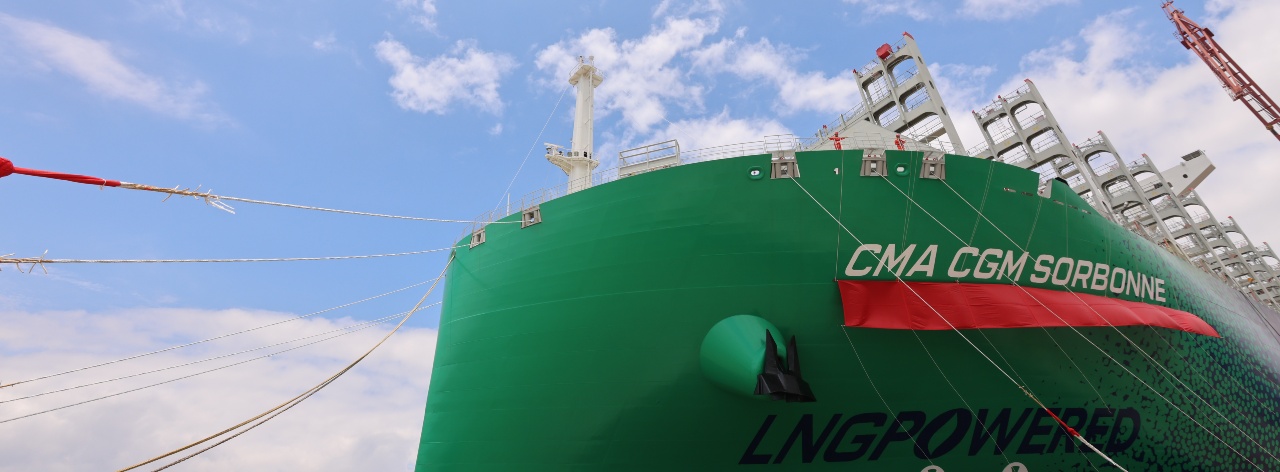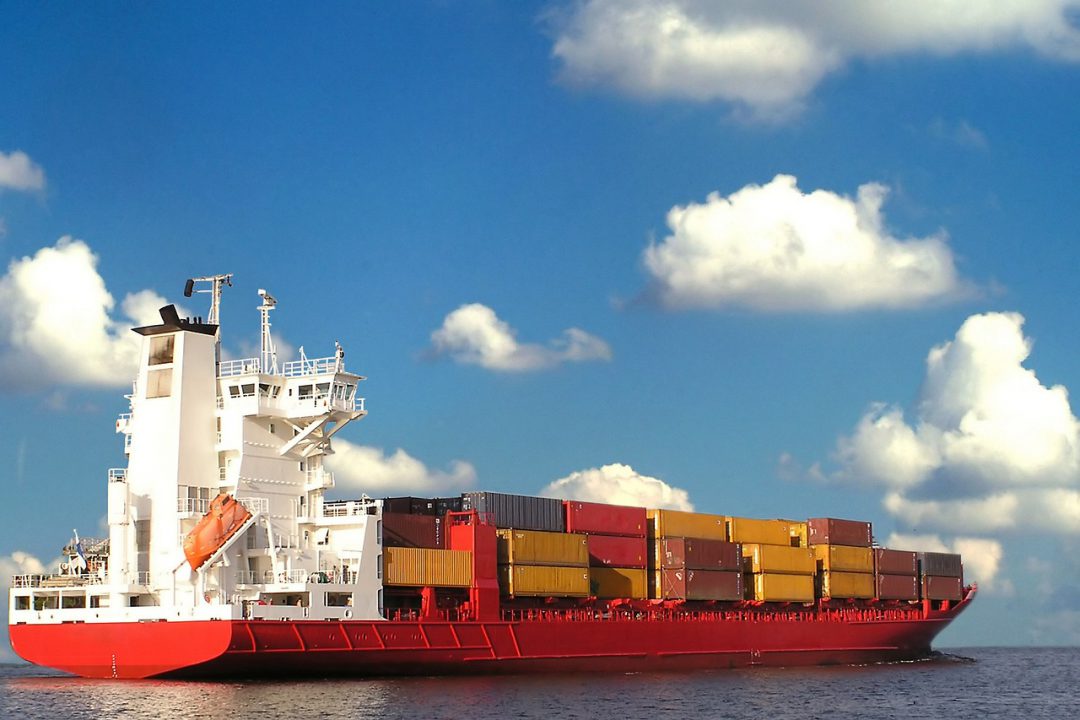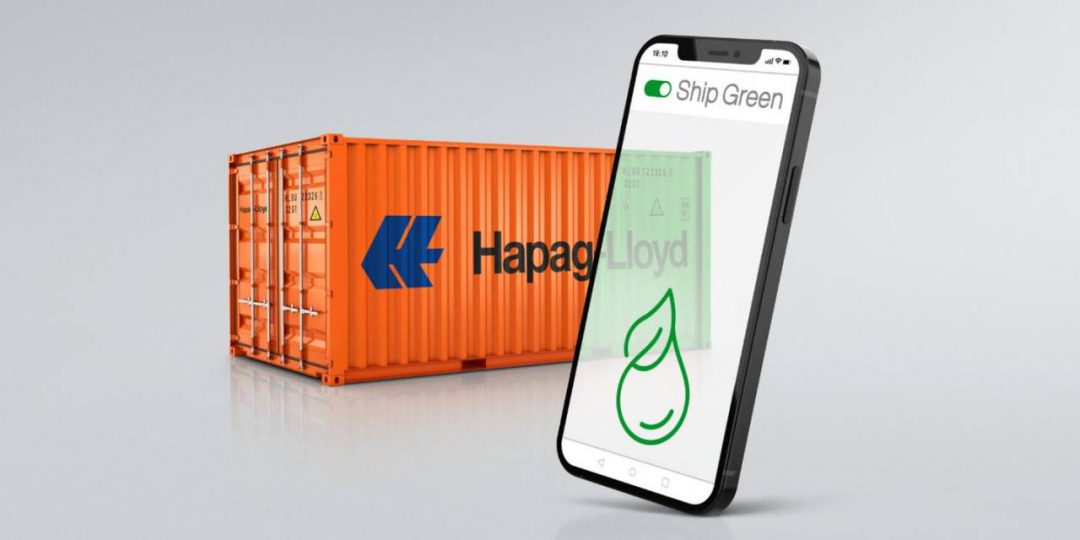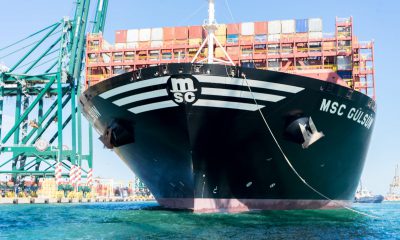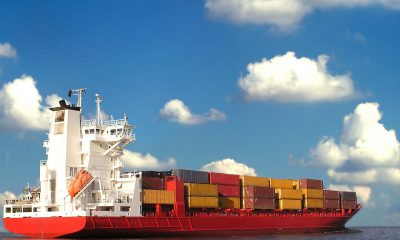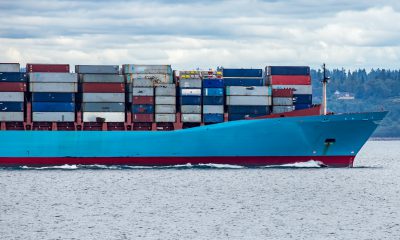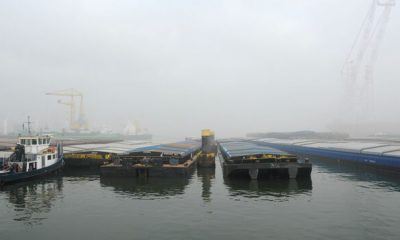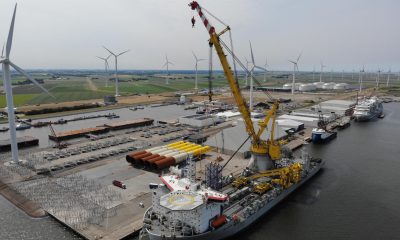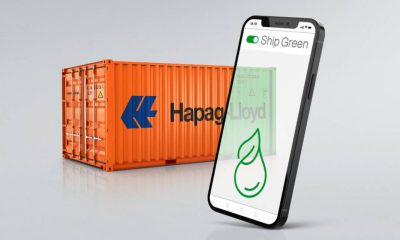CMA CGM SORBONNE, the latest in a series of nine 23,000 TEU (twenty-foot equivalent unit) vessels powered by liquefied natural gas (LNG) joined the fleet of the CMA CGM Group, a world leader in shipping and logistics. A ceremony was held at the Hudong-Zhonghua Shipbuilding under CSSC in Shanghai in the presence of Ludovic Renou, Chief Executive Officer of CMA CGM China, and the ship’s godmother, Jiang Dandan, a well-known philosopher and artist who teaches at Jiaotong University in Shanghai as well as at the Sorbonne in Paris.
By choosing to name the ship CMA CGM SORBONNE, the Group pays tribute to the world-renowned institution. A proud symbol of knowledge and of the excellence of teaching and academic research in France, the Sorbonne helps promote the country’s image all over the world.
LNG, a pioneering choice to protect air quality and reduce shipping’s carbon footprint
In November 2017, Rodolphe Saadé, Chairman and Chief Executive Officer of the CMA CGM Group, made the pioneering decision to equip this series of 23,000 TEU container ships with LNG-powered engines, a first in the history of shipping for vessels of this size. This demonstrates the CMA CGM Group’s determination to support the transition to new energy sources in shipping.
LNG is currently the best solution available to reduce shipping’s carbon footprint and protect air quality. The fuel allows for a 99% reduction in sulfur dioxide emissions, a 91% reduction in fine particles and a 92% reduction in nitrogen dioxide emissions, well beyond current regulatory requirements. LNG also offers an initial response to combating climate change.
Between now and the end of 2024, 44 of the Group’s vessels will be powered by LNG. This technology is one of the first steps towards achieving the CMA CGM Group’s target to become carbon neutral by 2050.
A host of innovations, the result of seven years of research and development by CMA CGM experts
These nine vessels present a host of innovations, the result of lengthy cooperation between CMA CGM’s research and development teams and its industrial partners. In addition to their LNG engines, the vessels feature cutting-edge technologies including a control deck with the latest onboard digital technologies to assist the Captain and crew, in particular during port maneuvers, as well as a narrow bulbous bow, and a redesigned rudder and propeller to make them more hydrodynamic, thereby reducing energy consumption. The nine vessels showcase a special “LNG POWERED” livery, which are recognizable on all seas across the world.
CMA CGM creates an LNG center of excellence in France for the shipping industry
CMA CGM SORBONNE and her eight 23,000 TEU sister ships are registered in the French international register (RIF). The CMA CGM JACQUES SAADE, the first in this series of nine container ships, is the CMA CGM Group’s flagship. The other vessels in the series are named after iconic monuments and places in Paris, the French capital: Champs-Élysées, Palais Royal, Louvre, Rivoli, Montmartre, Concorde, Trocadéro and Sorbonne.
An illustrious university since it was founded in the thirteenth century, the Sorbonne helps to disseminate knowledge worldwide. By naming the latest in this new generation of ships after this iconic French institution, the CMA CGM Group has also given a nod to its commitment to training seafarers with a training program in partnership with the French Maritime Academy (ENSM) for crews of LNG vessels and its work with the French government to develop specific training programs.
The Group wants to create a French center of excellence in LNG for shipping by taking part in setting up LNG bunkering infrastructures, such as in Marseille, where the Group will refuel its future vessels with LNG as from December 2021.
Biomethane, a new more environmentally friendly solution
In April 2021, the CMA CGM Group took another step towards becoming net zero carbon by supporting the production of 12,000 tonnes of biomethane (equivalent to one year’s consumption of two 1,400 TEU vessels) with guarantee of origin. Biomethane is a renewable green gas produced, among other ways, from waste of organic and plant origin obtained from European farms and recovered at methanization plants.
With guarantee of origin biomethane, the CMA CGM Group is enhancing its range of high value-added services. ACT with CMA CGM+ now offers clients a way of using this renewable green gas and improving their environmental performance. By opting for this solution, clients will be able to reduce their well-to-wake (complete value chain) carbon emissions from transporting their goods by at least 67% and support the development of this non-fossil fuel.
The CMA CGM Group is fully committed to developing more effective, more resilient and more sustainable international trade, in particular by means of more responsible transportation and logistics solutions that protect people and the planet. This ambition, supported by the Group’s 110,000 employees, has a name: BETTER WAYS.
Nine vessels with capacity of over 200,000 TEU, a concrete response to logistics chain issues
The launch of the fleet of nine 23,000 TEU vessels between September 2020 and July 2021 has provided a concrete response against the backdrop of severe issues in logistics chains due to the Covid-19 pandemic. More than 200,000 TEUs of capacity have been made available to the CMA CGM Group’s clients on the iconic French Asia Line 1. Yet again demonstrating its agility, the CMA CGM Group has added 11.5% of capacity since summer 2020, an unparalleled response within the industry.
